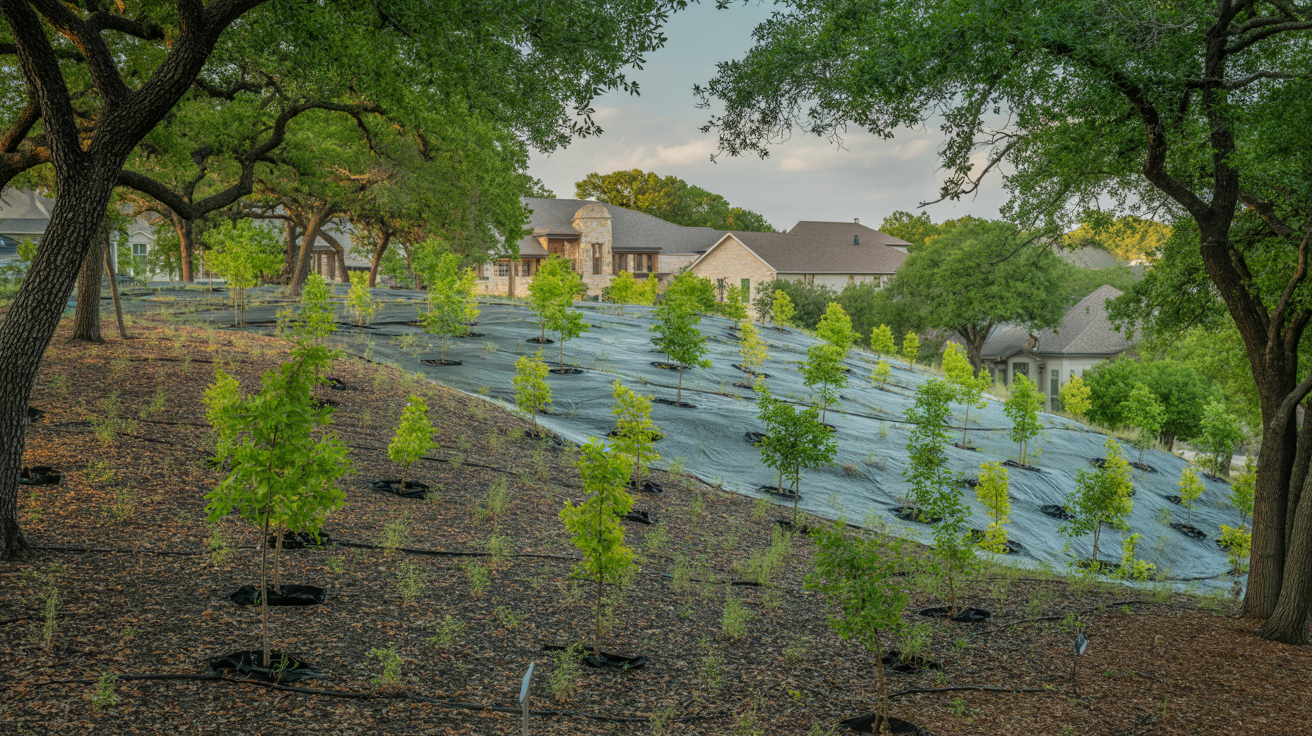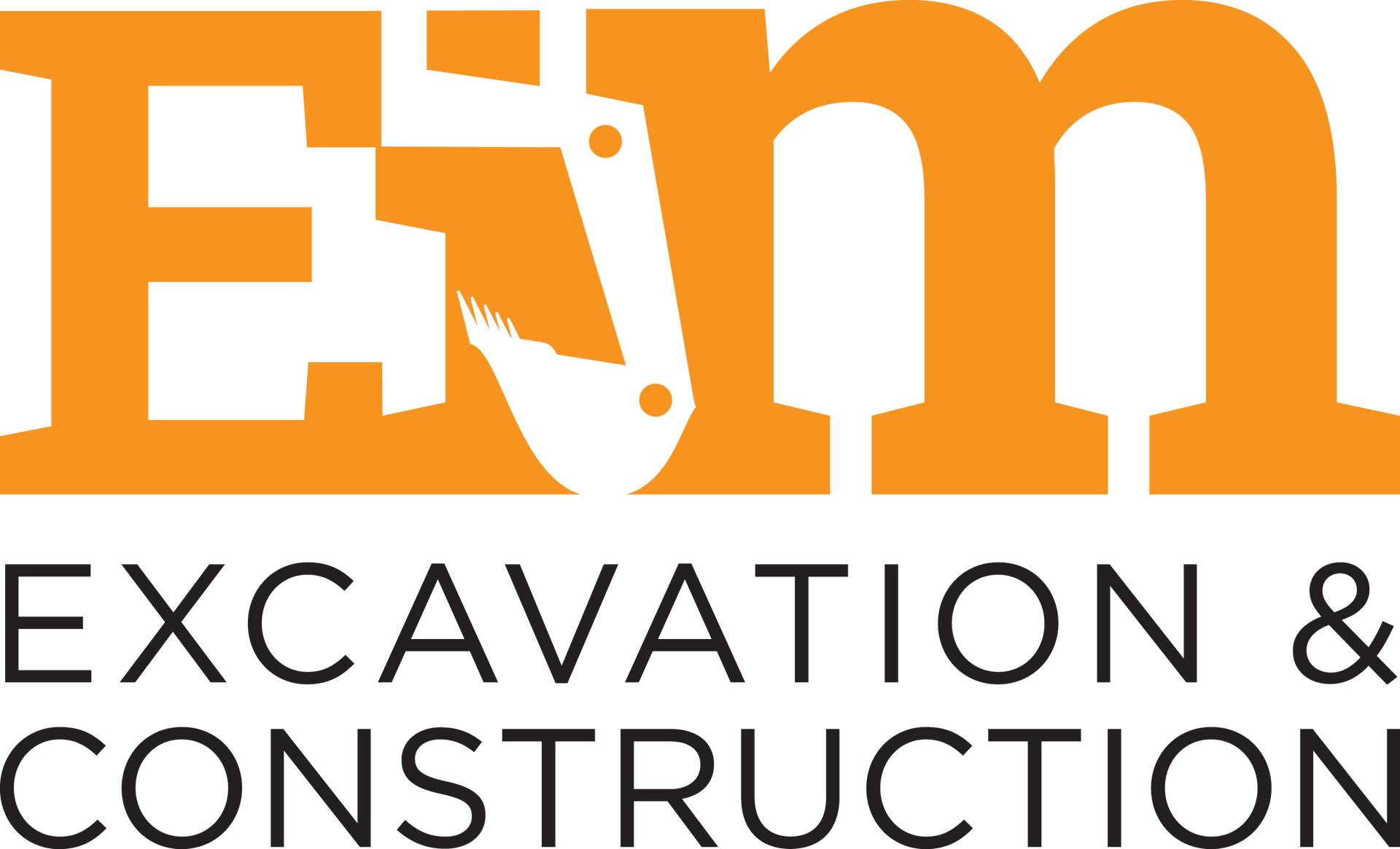Finding Expert Excavating Near Me: A Contractor's Guide
Finding Expert Excavating Near Me: A Veteran's Guide to Getting Your Project Done Right
When you're searching for "excavating near me," you're likely facing a project that requires moving dirt, shaping land, or preparing ground for something important to you. After twenty years in construction and founding Earth in Motion here in Austin, Texas, I've learned that the difference between a successful excavation project and a costly nightmare often comes down to understanding what you're really looking for and knowing the right questions to ask.
Let me share what I've discovered through decades of moving earth across different terrains, from the rocky challenges of Colorado to the unique clay soils we deal with here in Central Texas. Whether you're planning a custom pond, need site preparation for a new building, or require drainage solutions, the fundamentals of choosing the right excavation partner remain the same.
Why Local Excavating Knowledge Makes All the Difference
Every piece of land tells a story, and reading that story correctly can save you thousands of dollars and weeks of delays. During my military service and early construction career, I learned that understanding local conditions isn't just helpful—it's essential for project success.
Here in Austin, we deal with expansive clay soils that behave completely differently than the sandy loam I worked with in other regions. This clay expands when wet and contracts when dry, creating unique challenges for excavation work. When I moved from Colorado, where we battled rocky terrain and elevation changes, I had to completely adapt my approach to Texas conditions.
Local expertise matters because:
- Soil composition varies dramatically even within the same city
- Local regulations and permit requirements change between municipalities
- Weather patterns affect excavation timing and techniques
- Underground utilities follow regional installation patterns
- Access challenges are unique to each area's infrastructure
I remember one project where a homeowner had received three bids for a decorative pond. Two contractors quoted based on standard excavation rates, but I noticed the proposed location sat directly over what appeared to be an old creek bed. Sure enough, when we started digging, we found soft, unstable soil that required additional stabilization work. Because I understood the local geography, we had prepared for this possibility and completed the project on schedule.
Essential Questions to Ask When Evaluating Excavating Services Near Me
During my time building Earth in Motion into a certified Service-Disabled Veteran-Owned Small Business, I've seen too many property owners make decisions based on incomplete information. The lowest bid rarely tells the whole story, and the most expensive option isn't always the best value.
Credentials and Experience That Actually Matter
When you're evaluating potential excavation contractors, dig deeper than surface credentials. Ask about their specific experience with projects similar to yours. If you need a retention pond, has the contractor built water features before? If you're preparing a commercial site, do they understand the drainage requirements for your type of business?
Key qualifications to verify:
- Proper licensing for your state and municipality
- Current insurance coverage including liability and workers' compensation
- Experience with your specific project type
- Knowledge of local soil conditions and challenges
- Familiarity with relevant building codes and permit processes
Don't hesitate to ask for examples of similar completed projects. A reputable contractor should be proud to show you their work and explain how they handled challenges that arose during construction.
Understanding Their Approach to Project Safety
Safety standards separate professional operations from fly-by-night contractors. My military background instilled in me the importance of following proper procedures, and I've carried those principles into every excavation project we undertake.
Ask potential contractors about their safety protocols, especially regarding underground utilities. Every excavation project should begin with proper utility location services. I've seen contractors cut corners on this step, only to hit gas lines, water mains, or electrical cables—creating dangerous situations and expensive repairs.
Professional excavators also understand environmental regulations. Depending on your location and project scope, you may need permits for soil disturbance, erosion control, or stormwater management. Your contractor should be familiar with these requirements and help you navigate the permit process.
What Drives Excavation Costs and How to Plan Your Budget
Excavation pricing involves more variables than most people realize. Rather than focusing solely on per-yard rates, successful project planning requires understanding all the factors that influence your final costs.
Site Conditions That Impact Your Project Timeline and Budget
Every excavation project starts with understanding what lies beneath the surface. Soil type dramatically affects both the time required and the equipment needed for your project. Rocky terrain requires specialized equipment and more time, while soft or unstable soils may need additional stabilization measures.
Water table levels play a crucial role in project complexity. During one pond construction project in the Austin area, we discovered the water table was much higher than expected. This required dewatering systems and different construction techniques, but because we had planned for potential complications, the homeowner understood these costs upfront.
Factors that influence project complexity and costs:
- Soil composition and stability
- Presence of underground utilities or structures
- Site accessibility for equipment
- Depth and precision requirements
- Environmental restrictions or permit requirements
- Seasonal weather considerations
The True Cost of Cutting Corners
Early in my career, I witnessed the aftermath of excavation projects gone wrong. Homeowners who chose contractors based solely on the lowest bid often ended up paying significantly more when problems arose. Poor drainage design leads to water damage. Inadequate site preparation causes foundation issues. Improper soil compaction results in settling and structural problems.
Quality excavation work is an investment in your property's long-term success. When we prepare a site for construction or create a custom water feature, we're not just moving dirt—we're engineering a foundation for your vision that will perform correctly for decades.
Consider the total project cost, including potential complications, rather than just the initial excavation work. A contractor who thoroughly evaluates your site and discusses potential challenges upfront is protecting your investment, not trying to inflate costs.
Specialized Excavation Services and When You Need Them
Not all excavation work is the same. Different projects require different expertise, equipment, and approaches. Understanding what type of excavation your project requires helps you find the right contractor and set appropriate expectations.
Custom Pond Construction and Water Feature Excavation
Building custom ponds has become one of my greatest passions at Earth in Motion. Each water feature presents unique engineering challenges that go far beyond simple dirt removal. Proper pond construction requires understanding water flow, soil stability, liner installation, and long-term maintenance considerations.
When excavating for ponds and water features, soil analysis becomes critical. Some soils naturally retain water, while others require liner systems for proper water retention. The excavation process must account for proper slopes, depth variations, and filtration system installation.
I've built ponds ranging from small backyard water features to large retention ponds for commercial properties. Each project taught me something new about working with water and understanding how different soil conditions affect long-term pond performance.
Site Preparation and Foundation Excavation
Preparing sites for construction requires precision that goes beyond moving dirt from one place to another. Proper site preparation involves understanding drainage patterns, soil compaction requirements, and elevation management to ensure your new structure has a solid foundation.
Foundation excavation demands accuracy in both depth and dimensions. Small errors in foundation preparation can create significant problems during construction and potentially compromise the structural integrity of your building. This is why experience with similar projects matters so much when selecting an excavation contractor.
Drainage Solutions and Utility Trenching
Proper drainage protects your property investment and prevents costly water damage. Excavation for drainage solutions requires understanding how water moves across your landscape and designing systems that manage both normal rainfall and severe weather events.
Utility trenching involves working around existing infrastructure while installing new services. This type of excavation requires careful planning, proper utility location, and precise digging to avoid damaging existing systems while installing new ones.
Red Flags to Avoid When Choosing Local Excavation Services
Two decades in construction have shown me warning signs that indicate potential problems with excavation contractors. Recognizing these red flags early can save you significant time, money, and frustration.
Communication and Planning Concerns
Professional excavation contractors take time to understand your project goals and explain their approach clearly. Be wary of contractors who provide quotes without thoroughly examining your site or who can't explain how they plan to handle potential complications.
Contractors who pressure you to make immediate decisions or who seem reluctant to answer detailed questions about their methods may not have your best interests in mind. Quality excavation work requires planning and preparation—contractors who rush this process often create problems later.
Licensing, Insurance, and Documentation Issues
Never work with unlicensed contractors or those who can't provide proof of current insurance coverage. If something goes wrong during excavation work, you need the protection that comes with working with properly licensed and insured professionals.
Contractors who provide only verbal estimates or who avoid putting project details in writing create unnecessary risks for property owners. Professional contractors provide detailed written estimates and contracts that protect both parties throughout the project.
Making the Final Decision: Beyond Price Comparison
Choosing the right excavation contractor requires balancing multiple factors to find the best value for your specific project. Price matters, but it's just one element in a complex decision that will affect your property for years to come.
Evaluating Contractor Communication and Professionalism
Pay attention to how contractors communicate during the bidding process. Do they return calls promptly? Do they arrive on time for site visits? Do they ask thoughtful questions about your project goals and timeline? These behaviors during the sales process often predict how they'll handle your project.
The best excavation contractors educate their clients about the work being performed. They explain potential challenges, discuss different approaches, and help you understand why certain methods or materials are recommended for your specific situation.
Understanding Project Timelines and Scheduling
Realistic scheduling demonstrates contractor experience and professionalism. Be skeptical of contractors who promise unusually fast completion times or who seem unclear about how long your project will take.
Weather conditions significantly impact excavation work, especially here in Texas where sudden storms can halt work for days. Experienced contractors build realistic schedules that account for these variables while keeping your project moving forward efficiently.
Long-term Relationship Potential
Consider whether the contractor you're choosing could handle future excavation needs on your property. Property owners often discover additional projects once they see quality excavation work completed. Building a relationship with a reliable contractor provides ongoing value beyond your current project.
At Earth in Motion, many of our best relationships started with small projects that grew into comprehensive property improvements over time. We've built ponds for clients who later needed site preparation for additions, drainage solutions for landscape improvements, and utility excavation for property upgrades.
Conclusion: Your Next Step in Finding Quality Excavation Services
Finding the right excavation contractor requires more than comparing prices or choosing the first company that returns your call. Successful excavation projects result from careful planning, clear communication, and working with experienced professionals who understand both your vision and the technical challenges involved in making it reality.
My experience building Earth in Motion from a startup to a certified Service-Disabled Veteran-Owned Small Business has taught me that every excavation project is unique, but the fundamentals of quality work remain consistent. Whether you're planning a custom pond, preparing a construction site, or solving drainage problems, the right contractor makes all the difference in achieving results that exceed your expectations.
Take time to thoroughly evaluate potential contractors, ask detailed questions about their experience and approach, and choose based on overall value rather than just initial cost. Your property deserves excavation work that enhances its value and performs reliably for decades to come.
When you're ready to move forward with your project and want to work with experienced professionals who understand what it takes to deliver exceptional results, remember that quality excavating near me starts with choosing contractors who combine technical expertise with genuine commitment to client success.
Frequently Asked Questions About Excavating Services
How do I choose the right excavation contractor for my project?
When selecting an excavation contractor, focus on local expertise and project-specific experience. At Earth in Motion, I bring twenty years of construction experience and deep knowledge of Central Texas soil conditions, from the expansive clay soils common in Austin to the rocky terrain I encountered during my time in Colorado. Look for contractors who are properly licensed, carry comprehensive insurance, and can demonstrate experience with projects similar to yours. Ask about their safety protocols, especially regarding utility location services, and ensure they understand local regulations and permit requirements. A quality contractor will thoroughly evaluate your site, discuss potential challenges upfront, and explain their approach clearly rather than rushing to provide a quick quote.
What factors determine the cost of excavation work?
Excavation costs depend on multiple variables beyond simple dirt removal. Site conditions play the largest role - soil composition dramatically affects both time requirements and equipment needs. Rocky terrain requires specialized equipment, while soft or unstable soils may need additional stabilization measures. Water table levels, site accessibility for equipment, depth and precision requirements, and environmental restrictions all influence project complexity. At Earth in Motion, I've learned that proper site evaluation prevents costly surprises. For example, during pond construction projects in Austin, understanding local geography helps us prepare for conditions like old creek beds or unexpected soil changes. Project timeline also affects costs, as seasonal weather considerations and permit requirements can impact scheduling.
Can excavation work be done during winter months?
Winter excavation is possible but requires careful planning and may involve additional considerations. Here in Central Texas, we have more flexibility than northern climates, but weather still impacts project scheduling. Frozen soil, increased safety risks, and equipment challenges can extend project timelines and require specialized techniques. At Earth in Motion, I plan projects around seasonal conditions, understanding that sudden storms common in Texas can halt work for days. Experienced contractors build realistic schedules that account for weather variables while keeping projects moving efficiently. Rather than focusing solely on timeline, it's better to prioritize proper conditions for quality work that will perform correctly for decades.
What types of excavation services do you provide?
At Earth in Motion, we specialize in custom excavation solutions that go beyond basic dirt moving. Our services include custom pond construction and water feature excavation, which has become one of my greatest passions - each project presents unique engineering challenges involving water flow, soil stability, and long-term performance considerations. We also provide site preparation and foundation excavation for construction projects, where precision in depth and dimensions is critical. Our drainage solutions and utility trenching services protect property investments by managing water flow and working around existing infrastructure. Whether you need land clearing, site grading, or specialized excavation for unique terrain challenges, we approach each project as an engineering solution tailored to your specific goals and local conditions.
How long will my excavation project take to complete?
Project duration depends on scope, site conditions, and complexity rather than simple project size. At Earth in Motion, I've learned that realistic scheduling demonstrates professionalism and protects your investment. Small projects like utility trenching might take a few days, while complex custom pond construction or major site preparation can extend over several weeks. Factors affecting timeline include soil composition, presence of underground utilities, site accessibility, required permits, and environmental considerations. Here in Austin, our expansive clay soils behave differently than other regions, requiring specific techniques that affect scheduling. Weather conditions significantly impact excavation work, especially sudden Texas storms. Rather than promising unrealistic completion times, I build schedules that account for these variables while maintaining steady progress toward exceptional results.



